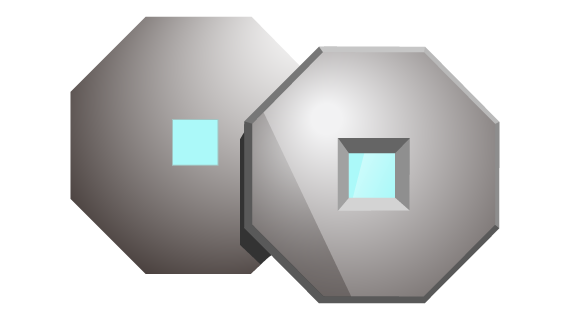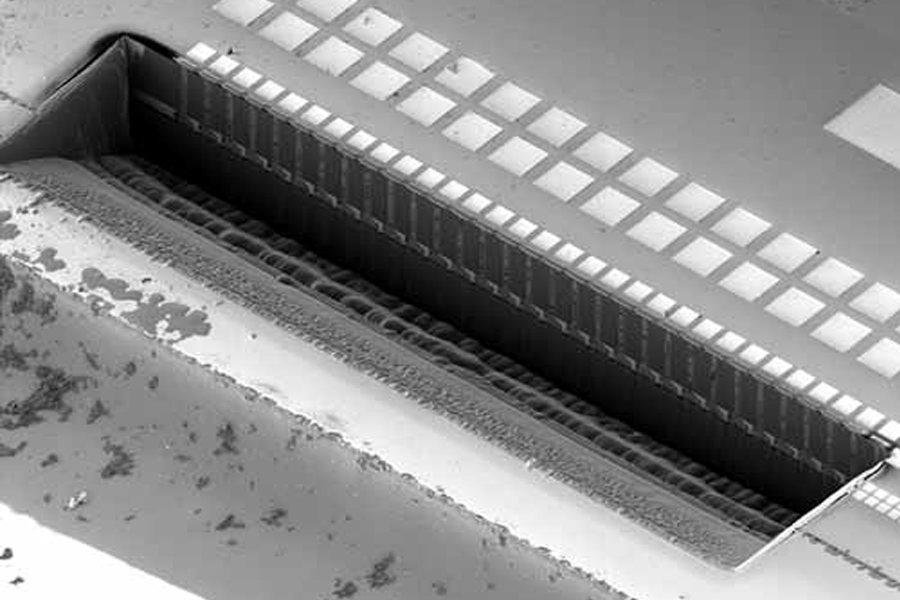Polysilicon Film丨Various reasons affecting wafer warpage
Polycrystalline silicon thin film丨influence on the warpage of silicon wafers In many cases, it should be

Silicon nitride thin-film windows have a wide range of applications in various fields, including bioscience, materials science, and semiconductor production and analysis. In this article, we will briefly introduce silicon nitride thin-film windows and explore the different applications of silicon nitride thin-film windows and their advantages in various fields.
Silicon nitride thin film windows are transparent window materials made from thin films of silicon nitride and are commonly used in electron microscopes, x-ray spectrometers, lasers and other high-tech fields. Silicon nitride has high hardness, high chemical stability, high thermal stability, excellent optical transparency and electrical insulation properties, making silicon nitride thin film windows ideal for use in many high-performance optical and electronic devices.
Silicon nitride films are typically available in thicknesses ranging from 10nm to 200m, depending on the application and can be tailored to different film thicknesses(Learn about customized services). The films are typically deposited using techniques such as chemical vapor deposition or sputtering, which are capable of creating high-quality, uniform films with precise thickness control.
Silicon nitride film windows have several advantages over other materials typically used for windows, such as glass or plastic. They are highly resistant to corrosion, temperature changes and mechanical stress, making them suitable for use in harsh environments. They also have a high degree of optical transparency in the visible and infrared ranges, making them ideal for applications such as microscopy and spectroscopy.
Silicon nitride thin-film windows are widely used for imaging and sensing applications in the biosciences. One of the most significant advantages of silicon nitride thin-film windows is their high transmittance in the infrared region, which makes them ideal for studying biological samples. They also have a high signal-to-noise ratio, which helps detect small molecules and proteins in biological samples.
Another important advantage of silicon nitride thin-film windows in bioscience is their biocompatibility. They do not interact with biomolecules and do not introduce any contamination into the sample. This makes them ideal for studying living cells and organisms as well as for drug discovery and development.

Silicon nitride thin film windows are also widely used in materials science research. They are commonly used as substrates for studying thin film deposition, crystal growth and surface chemistry. Silicon nitride thin film windows have high thermal stability, which makes them suitable for high temperature applications. They are also chemically stable and resistant to most acids and bases, making them ideal for studying a wide range of materials.
One of the most significant advantages of silicon nitride thin-film windows in materials science is their mechanical strength. They are much stronger than other thin-film window materials, such as carbon films, and can withstand high pressures and strains without breaking. This makes them ideal for studying materials under extreme conditions.

Thin film windows of silicon nitride are also widely used in semiconductor production and analysis. They are commonly used as substrates for studying semiconductor properties and characterizing the performance of electronic devices.
One of the most significant advantages of silicon nitride thin-film windows for semiconductor production and analysis is their high dielectric strength. They can withstand high voltages without breaking, which makes them ideal for studying the electrical properties of semiconductors.
Another important advantage of silicon nitride thin-film windows in semiconductor production and analysis is their chemical stability. They do not react with most chemicals used in the semiconductor industry, which makes them ideal for studying the effects of different chemicals on semiconductor properties.

We offer Silicon Nitride Thin Film Windows / MEMS Customization ServicesPlease feel free to leave a message.
Polycrystalline silicon thin film丨influence on the warpage of silicon wafers In many cases, it should be
Silicon nitride thin film window products are used in a wide range of applications in materials science, semiconductor production and analysis, and bioscience. Our high quality products provide high resolution imaging capabilities for a wide range of sample types and sizes.
Science Guide: Introduction, Characteristics and Application Scenarios of Silicon Nitride Thin Film Windows Nitride
.jpg)